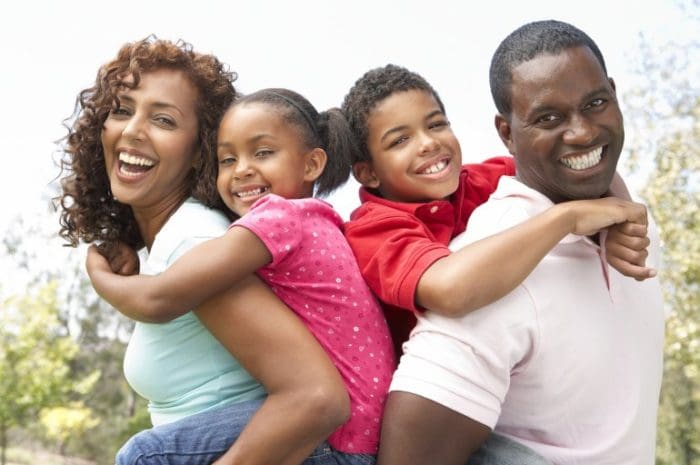Leave it to Think Progress, of all places, to give digital ink to the skeptics of gun control in the black community. Yes, as a radical left website, they usually embrace gun control with both arms. However, this time they published a piece detailing the downside of gun control schemes for African-Americans.
In the story, noting that Pittsburgh’s black community is wary of the city’s new gun control policies, the authors correctly observe that gun control policies don’t make people safer. Instead, they leave them more vulnerable.
‘Always lands on the backs of young African-Americans’
Pittsburgh Reverend De Neice Welch told an interviewer: “Any ordinance like this… always lands on the backs of young African-Americans.”
In a sense, she’s right. Then again, gun control has a long history of racist roots. Early gun control in America was passed by racist political leaders with an eye towards disarming “undesirables.” And African-Americans have faced a long and difficult road towards the relative equality they enjoy today, despite some, to this day, still like to pass gun control schemes that disproportionately impact the black community. People like Michael Bloomberg, who think minorities can’t be trusted with firearms.
But the vulnerability Think Progress erroneously cites for African-Americans relates to police brutality. However, it’s not the police who victimize the black community in Pittsburgh and other big cities on a virtually hourly basis. Instead, it is, by and large, their fellow African-Americans…gang members and other violent criminals.
Even though Think Progress gets the source of vulnerability wrong, they nailed the general concept of gun control’s role in protecting criminals, not victims.
Here’s a teaser:
Since 2014, 80 percent of Pittsburgh’s homicide victims have been black, and firearms have been involved 86 percent of the time, the Public Source reports. Yet, from the perspective of some members of the community, it took a high profile mass-shooting at a synagogue for lawmakers to act.
After the October 2018 shooting that killed 11 people at the Tree of Life synagogue, city council members in Pittsburgh acted swiftly, despite inaction by the state legislature. The council earlier this month passed a slate of measures that banned some assault style weapons, as well as most armor-piercing ammunition and high-capacity magazines.
And they did it in direct violation of Pennsylvania’s state pre-emption law. But why should Pittsburgh’s city council follow the rule of law? After all, it’s not the city council members who have to pay the freight to defend their illicit ordinance in court.
…These new measures could lead to further distress, however, within Pittsburgh’s black community.
“Any ordinance like this… always lands on the backs of young African Americans,” Rev. De Neice Welch, president of the Pennsylvania Interfaith Impact Network, told the Public Source.
Welch, a supporter of gun control measures, is among many who reasonably fear that these laws could lead to young black men being wrongfully criminalized, especially those who possess firearms — legally, or not. “The phrase, ‘I’m in fear for my life,’ has literally given [officers] permission to fire at will,” says Welch…
While enhanced gun safety laws are something generally to applaud, the black community in Pittsburgh has voiced concerns about the downsides. Many local leaders worry that these new laws could lead to over-policing in their community, which in turn could lead to more tragedies like the fatal police shooting of black teenager Antwon Rose II. Rose, 17, unarmed and fleeing East Pittsburgh cops during a traffic stop in the summer of 2018, was shot in the back numerous times. Michael Rosfeld, the officer charged with killing Rose, was acquitted last month.
There’s also concern about newly enacted laws that apply only to the city of Pittsburgh and not to the state of Pennsylvania at large. In a recent report by CityLab, stringent gun restrictions imposed in Washington, D.C., provided historical parallels for some concerns expressed by Pittsburgh’s black community. Per CityLab’s Brentin Mock:
Many black organizations and leaders opposed the D.C. gun laws out of fear that they could further criminalize their communities. And they were right to be concerned: In 1993, the Bureau of Justice Statistics reported that African Americans were arrested at five times the rate of whites for gun possession, despite white men owning guns at much higher rates. However, the handgun ban in D.C. appeared to be serving its essential purpose: One study found that the gun-control law “coincided with an abrupt decline” in gun-related homicides and suicides.
Mock says the lesson that Pittsburgh will have to learn is “how to create laws that will take more illegal guns off the streets and save more lives, while ensuring that black people don’t become criminalized collateral damage in the process.” So while there is a real need for gun laws that make sense, there’s also a serious need to reform the ways these laws are enforced.
Let’s face it. We all know that criminals don’t follow the law. That’s why they are criminals.
Violent predators don’t care about laws against rape, robbery, murder, and arson. If they don’t care about the prohibition on murder, why are bad guys going to give a second thought to a city ordinance violation charge?
They’re not. But law-abiding people generally follow the laws. Including the overwhelming number of law-abiding African-Americans in Pittsburgh and elsewhere.
Misguided laws like Pittsburgh’s new gun control regime won’t make them any safer. n fact, it will leave all residents and visitors to Pittsburgh – not just African-Americans – more vulnerable.
